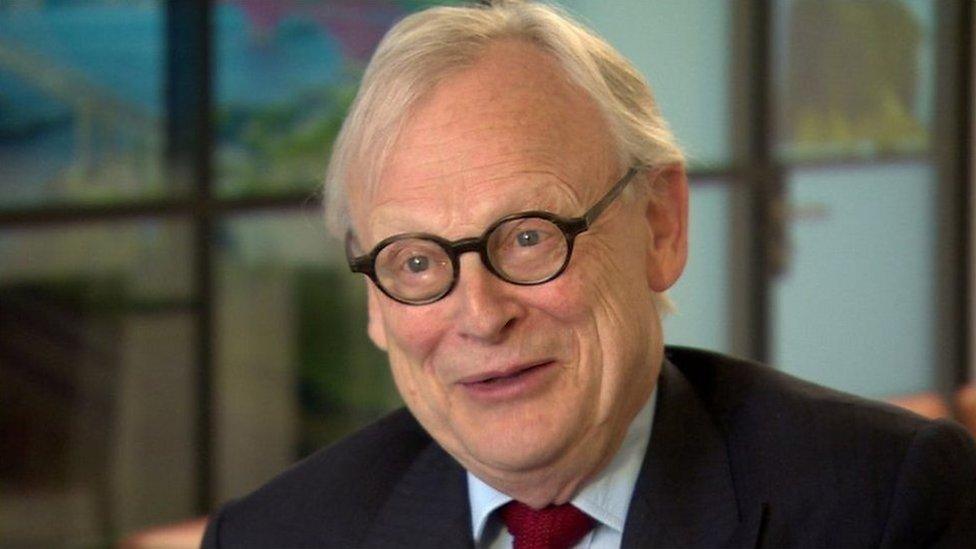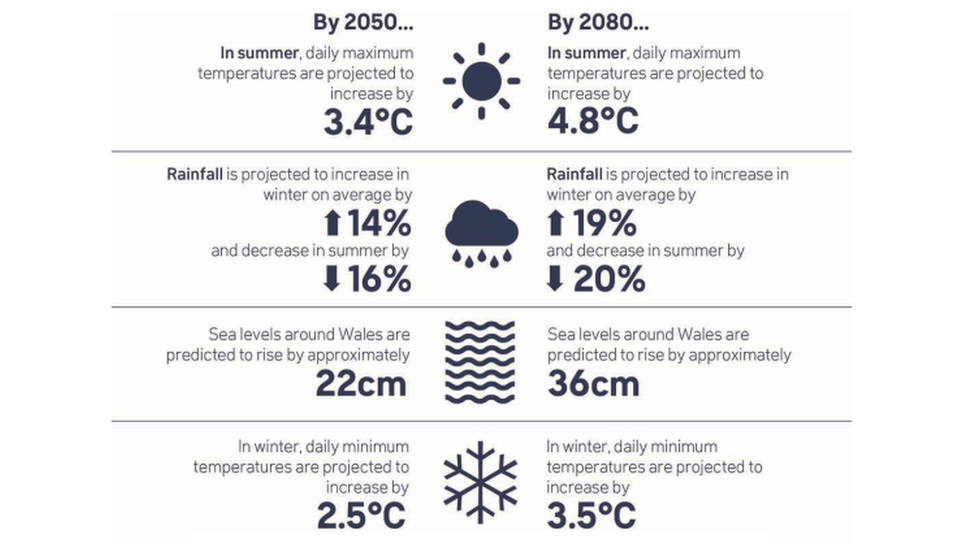Climate change: Don't be too scary on issue, says adviser
- Published

Lord Deben: "You don't get people to act if you frighten them"
It would be a mistake to frighten people too much on climate change, despite the challenge the world faces, a key UK adviser on the issue has said.
Lord Deben said the situation is "catastrophic" but if you scare the public "you don't get people to act".
Instead they say "drink and be merry, for tomorrow we die", he told a group of Senedd members.
Lord Deben chairs an independent committee, external advising the UK and devolved governments on emissions cuts.
He was giving evidence to the Welsh Parliament's climate change committee.
Last month a landmark UN scientific report warned of increasingly extreme heatwaves, droughts and flooding, and a key temperature limit being broken in just over a decade.
But there is hope that deep cuts in emissions of greenhouse gases could stabilise rising temperatures.
Lord Deben told the committee on Thursday that you have to be "willing to say thank you" for the progress made in the UK over the past decade and "generous in praise for what is being done" now to tackle climate change.
"Then say, 'actually, it isn't enough but we can do what is enough'," he said.
He said the cost of changing behaviour to cut emissions was less than one per cent of the UK's economic output and "perfectly doable", with the private sector having "huge sums of money available".

Projected impacts from climate change from a medium emissions scenario
Lord Deben, environment minister under John Major's government in the 1990s, said the biggest question was making sure the transition "is a fair one, so that it doesn't weigh heavily on those least able to pay" the extra costs involved.
He also expressed fears that the whole of the UK was not developing the skills needed to take advantage of the opportunities of the economic changes that were coming.
"I have a horrible feeling that we're going to have a lot of green jobs and nobody to fill them," he said.
Lord Deben said there was a "real opportunity for Wales to be a leader on this "because of the enormous history of education being held as such a prized thing in Wales, because it was the way you got out of circumstances you didn't like - you worked your way through and education was crucial".
The UK is hosting a summit next month seen as crucial if climate change is to be brought under control.
At COP26, in Glasgow, leaders from 196 countries will be asked to agree action to limit climate change and its effects, including rising sea levels and extreme weather.

MONUMENTAL MRS CAMPBELL: Wales' first black head teacher celebrated with iconic statue
MOTHERS, MISSILES AND THE AMERICAN PRESIDENT: The story of Greenham told like never before
